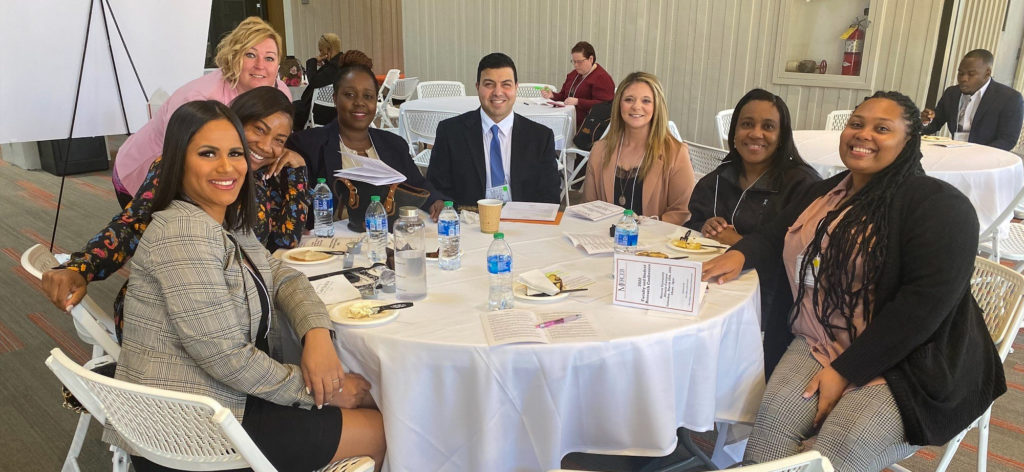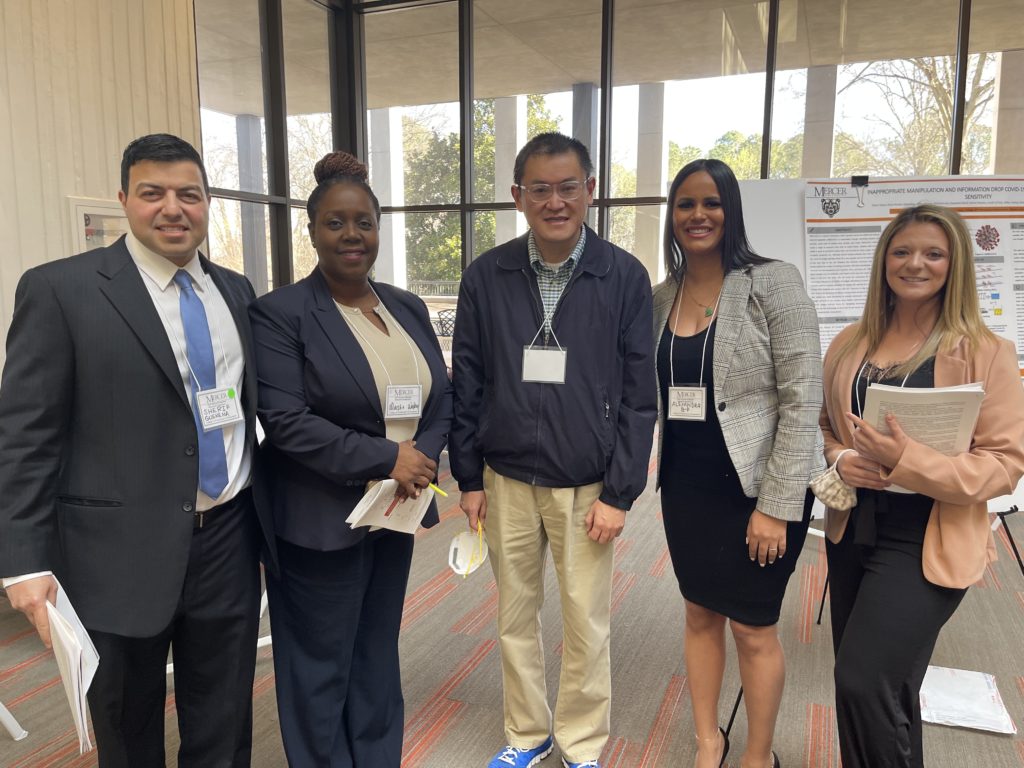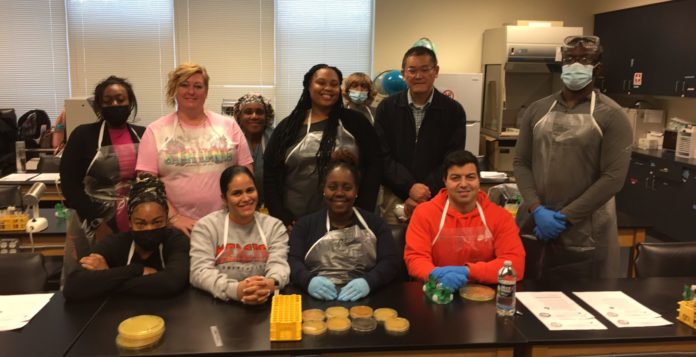A dozen Mercer students recently used their microbiology knowledge to help spread awareness about proper COVID-19 self-testing procedures.
Dr. Jia Fei, visiting instructor in the Department of Mathematics, Science and Informatics in the College of Professional Advancement (COPA) at the Henry County Regional Academic Center, received funding from Mercer’s Center for Engaged Learning for this service-learning project for his Biology 256: Microbiology for Allied Health course.
The course focuses on fundamental microbiology principles related to health professions, including immunology, pathogenic organisms and resulting diseases. For the research project, students analyzed scholarly articles on COVID-19, testing technologies and antigen at-home testing, and they performed tests on various bacteria in the lab.
Then, they used their data to create a detailed brochure with information on the origins of COVID-19, how it spreads and how testing works; comparisons of available home-testing methods; pros and cons of self testing; and instructions on proper testing procedure to ensure the most accurate results.

COVID-19 home-testing kits are easy to use and inexpensive, but they have a high false negative rate because users often do not follow the instructions correctly, Dr. Fei said. The project aims to educate the community on best practices and, therefore, improve testing accuracy.
“The home testing sensitivity is very low, so the false negative of the testing is high,” Dr. Fei said. “That’s why I designed this project. This is community outreach to share coronavirus knowledge as well as knowledge of the home testing kits and process. We want to show people how to correctly manipulate the home tests and decrease false negative testing so that we are protecting the community.”
Class members, many of them pre-health majors, distributed copies of their brochure to community members during a drop-in event on the Henry County campus on March 22. They also created a poster about their research at the Atlanta Research Conference on March 26 and distributed their brochures there.
“All my students were very interested in this project and were happy to be involved,” Dr. Fei said. “I really appreciate their hard work.”
Ashley Miller, a pre-nursing major, said the course provided her with background knowledge on infectious diseases and how they spread, which will be helpful in her future nursing classes. It’s important for everyone to be informed and have an understanding and respect for the COVID-19 virus. She hopes the project will show people how to accurately test at home, so hospitals won’t continue to be overburdened.
“It is important to be able to tell people how to properly use this test because it could reduce the severity of the pandemic,” said Sherif Guenena, also a pre-nursing major.
Guenena said the research project gave him a better understanding of how the home test works, its accuracy, and how it compares to other types of tests.
With a background in numbers and finance, he found the comparisons of the various tests and their sensitivities to be very interesting. In addition, reviewing scholarly articles provided him with good experience in digesting complex topics.
“This service-learning project allows them to learn more deeply about a topic in microbiology while applying knowledge pertinent to their fields as they share information with the community around Mercer’s Henry Regional Academic Center,” said Dr. Colleen Stapleton, chair of COPA’s Department of Mathematics, Science and Informatics. “The work of students in this project developed by Dr. Fei will contribute to resolving pandemic self-testing issues in the community.”












